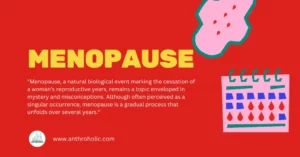AI Answer Evaluation Platform Live Now. Try Free Answer Evaluation Now
Forensic Medicine
Imagine solving a mystery where the body itself tells the story. No loud witnesses, no dramatic confessions just science, precision, and a trained eye uncovering the truth. This is the world of forensic medicine.

Far beyond the TV drama clichés, forensic medicine plays a vital role in real-world criminal investigations and legal systems. It’s the field where medicine meets law, where doctors not only heal the living but also speak for the dead. From determining the cause of death to analyzing injuries for court cases, forensic medicine forms the silent backbone of justice.
What is Forensic Medicine?
At its core, forensic medicine is the application of medical knowledge to legal questions. It helps answer critical issues like: How did someone die? When did the death occur? Is an injury consistent with a claimed assault? Through meticulous examination, forensic specialists provide crucial evidence that can confirm or refute facts in criminal and civil cases.
Many people confuse forensic medicine with forensic science. While both overlap, there’s a key difference:
- Forensic medicine deals specifically with medical aspects — like examining bodies, interpreting wounds, or evaluating psychological states.
- Forensic science is broader, covering ballistics, fingerprints, blood spatter analysis, and more.
Simply put: every forensic doctor is part of forensic science, but not every forensic scientist is a doctor!
A Brief History of Forensic Medicine
The roots of forensic medicine stretch back thousands of years.
- Ancient China: One of the earliest known forensic texts, “The Washing Away of Wrongs” (circa 1247), detailed how to determine causes of death by examining corpses.
- Roman Empire: Physicians often testified in court on deaths and injuries.
- Medieval Europe: Autopsies became increasingly important, especially when criminal accusations were involved.
- Modern era: The 19th and 20th centuries brought scientific rigor to the field, with pioneers like Dr. Joseph Bell (the inspiration for Sherlock Holmes!) emphasizing observation and deduction.
Today, forensic medicine relies not just on sharp eyes and intuition, but also on technology DNA testing, toxicology reports, and digital autopsies are reshaping the field.
Key Areas of Forensic Medicine
Forensic medicine is not a one-size-fits-all job. It spans several fascinating specializations:
Autopsy and Cause of Death Analysis
The most iconic image of forensic medicine is the autopsy. Pathologists examine bodies to determine how, when, and sometimes why a person died. They look for signs of trauma, disease, poisoning, or natural causes.
Clinical Forensic Medicine
Not all forensic doctors work with the deceased. Clinical forensic specialists assess living patients, like victims of assault, abuse, or sexual violence, documenting injuries for legal purposes.
Forensic Toxicology
When someone’s cause of death isn’t obvious, toxicologists step in. They analyze blood, tissues, and organs for traces of drugs, alcohol, or poisons. This branch is crucial in cases involving overdoses or suspected poisoning.
DNA Analysis and Identification
DNA has revolutionized forensic medicine. From identifying unknown bodies to linking suspects to crime scenes, genetic evidence is often the strongest form of proof in court today.
How Forensic Medicine Supports Criminal Investigations
Without forensic medicine, many criminal investigations would hit a dead end, sometimes literally. Medical examiners and forensic pathologists play a crucial role by interpreting the silent clues left on bodies and at crime scenes.
Crime Scene Examination
While detectives look for physical evidence like footprints or fingerprints, forensic doctors may be called to scenes to perform an initial inspection of a body. They assess body position, early signs of death (like rigor mortis), and visible injuries to form a preliminary theory.
Collecting and Interpreting Medical Evidence
From swabbing wounds for DNA to examining internal injuries, forensic specialists meticulously gather evidence. Their analyses can confirm if injuries match a suspect’s story or if the timeline of death aligns with alibis.
Expert Witness Testimony
In courtrooms, forensic doctors often serve as expert witnesses. Their neutral, scientific opinions can heavily sway juries, either validating the prosecution’s narrative or bolstering the defense.
Challenges and Ethical Dilemmas in Forensic Medicine
Working at the intersection of law and medicine brings unique challenges.
Confidentiality vs. Justice
Doctors are trained to protect patient confidentiality. However, in forensic medicine, that line can blur. Physicians must balance respecting privacy with their duty to disclose vital information for justice.
Bias and Impartiality
Because forensic doctors often work for state agencies or law enforcement, there’s always a risk, even subconsciously, of bias. Maintaining strict scientific impartiality is crucial.
Uncertainty
Unlike what TV shows portray, not every autopsy gives a clear answer. Sometimes, forensic medicine involves uncomfortable gray areas, where the cause of death remains “undetermined.”
The Future of Forensic Medicine
Exciting changes are on the horizon for forensic medicine!
- AI and Machine Learning: Algorithms are being developed to help interpret medical evidence faster and more accurately.
- Virtual Autopsies: Using CT scans and MRI imaging, forensic experts can now conduct “digital” autopsies, especially useful when traditional methods are culturally sensitive.
- Improved Global Standards: Organizations like the World Health Organization and INTERPOL are working on setting global medico-legal standards, ensuring consistency and accuracy across borders.
How to Pursue a Career in Forensic Medicine
Interested in becoming a part of this fascinating world? Here’s the path:
| Step | Details |
|---|---|
| Education | Medical degree (MBBS/MD), then specialization in forensic medicine |
| Skills Needed | Strong observation, analytical thinking, emotional resilience |
| Typical Roles | Forensic pathologist, medico-legal advisor, forensic toxicologist |
| Work Environments | Public hospitals, crime labs, universities, independent consultancies |
Forensic medicine isn’t just about solving crimes, it’s about speaking for those who can no longer speak for themselves, using the universal language of science.
Conclusion
In a world where truth can sometimes be elusive, forensic medicine stands as a pillar of clarity and justice. By merging deep medical knowledge with legal principles, forensic specialists help answer life’s most profound questions, how someone lived, suffered, and ultimately died.
From ancient texts to virtual autopsies powered by AI, the field has evolved remarkably, continually adapting to new technologies and societal needs. Yet at its heart, forensic medicine remains a profoundly human endeavor: listening to the silent testimony of bodies and translating it into meaningful evidence.
For those considering a career in this field, the future looks promising. As crime-solving becomes more technologically advanced and ethically complex, the demand for highly skilled forensic medical experts is only set to grow.
Whether uncovering hidden truths or championing justice, forensic medicine proves that even after death, every story deserves to be heard.




